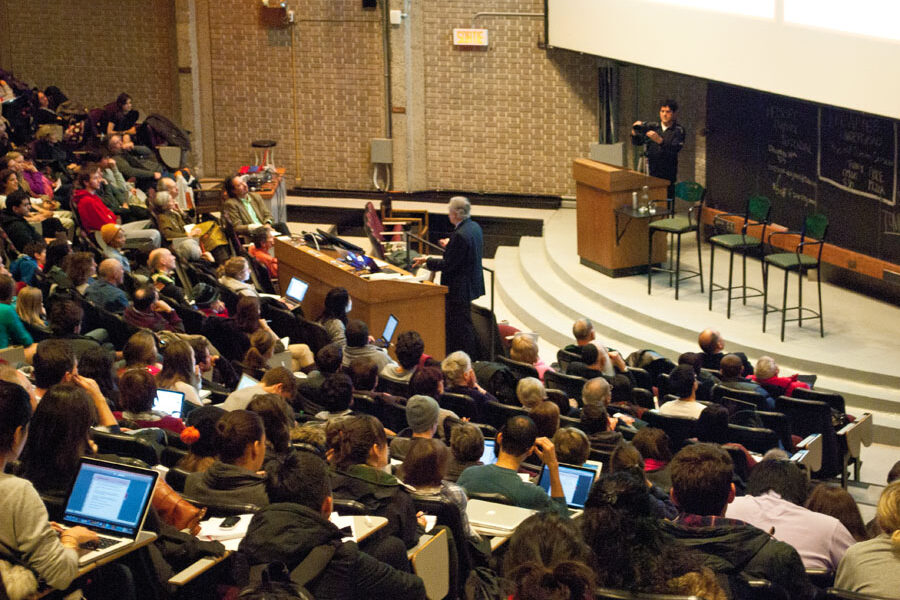There have been mounting outcries over poor labour conditions at Canadian universities as instructors and organizations alike point to problems such as low pay, overwork, difficulty being promoted, and lacking job security, exacerbated by a rise in contract-based positions. McGill, according to some members of the university community, is not immune to this so-called ‘academic precarity.’
As of April 2022, 76.3 per cent of teaching staff at McGill were on contract—a category that includes course lecturers, faculty lecturers, and adjunct professors, among others—rather than being tenure-track. Further, salaries for non-unionized staff range widely depending on faculty, program, and appointment. Salaries for unionized staff also vary according to these factors, but less so because they are regulated by collective agreements.
McGill Association of University Teachers (MAUT) president Renee Sieber, an associate professor in both the Department of Geography and the Bieler School of Environment, believes that academia has become a “seller’s market” as more people attain PhDs and qualify for teaching positions. She finds that instructors, even tenure-track ones, are sensing rising instability in their positions.
“If they do feel [precarious], they have to be a lot more cautious, risk averse, just keep their heads down, and do their research and not speak up for say, issues of academic freedom […] or dissent in other ways,” Sieber said in an interview with The McGill Tribune. “Or [they may feel that they] can’t do more service, like serve on committees, because if [they are] not trying to pump out research, you know, 80 hours a week, then [they are] going to be shown the door.”
Alexandra Ketchum, a faculty lecturer at McGill’s Institute for Gender, Sexuality, and Feminist Studies (IGSF), explained in an interview with the Tribune that faculty lecturers find themselves in a difficult position.
“Faculty lecturers are eligible after their contract is renewed for more than six years for permanence, which provides some stability but it is not the same as tenure and does not come with sabbaticals and as much research support and so forth,” Ketchum said. “So, while there are some mechanisms for some forms of stability that don’t exist at other institutions, there is a gap and hierarchy in terms of how the institution treats employees, in terms of what kinds of financial and material support is offered.”
Ketchum brought up that women, racialized, and queer instructors often end up doing more ‘invisible’ work, such as servicing their department or advising students, which is critical but less valued than research by much of the academic community. When it comes time for pay raises or promotions, these individuals are often overlooked.
“There’s also an issue of respect and culture, in which there’s a way that non-tenure-track employees […] are treated as less worthy of respect and are often treated as less legitimate scholars,” Ketchum said. “Academia is very hierarchical and very prestige based, and so there’s a culture that can undermine a lot of the contributions of non-tenure-track scholars.”
While some academic staff at McGill—including course lecturers, teaching assistants (TAs), and now professors in the Faculty of Law—are unionized and, thus, protected by collective agreements, the vast majority are not. Though organizations like MAUT exist to advocate for non-unionized teachers’ pay, benefits, and rights, they do not have the same negotiating powers as a union.
Emily Benoit, U2 Arts, thinks unionization would benefit not only staff, but students as well. She pointed out, however, that the university seems dedicated to keeping labour conditions as they are.
“I know that [with] the law profs, McGill threw everything they had at them to prevent them from unionizing. And that’s the law professors—they know the most legal stuff,” Benoit told the Tribune. “It makes all the other profs and all the other faculties […] scared of unionizing because, you know, they can’t necessarily deal with that [….] It would be better for the students because [a union would bring] better working conditions for the profs. So happier profs, happier students.”









